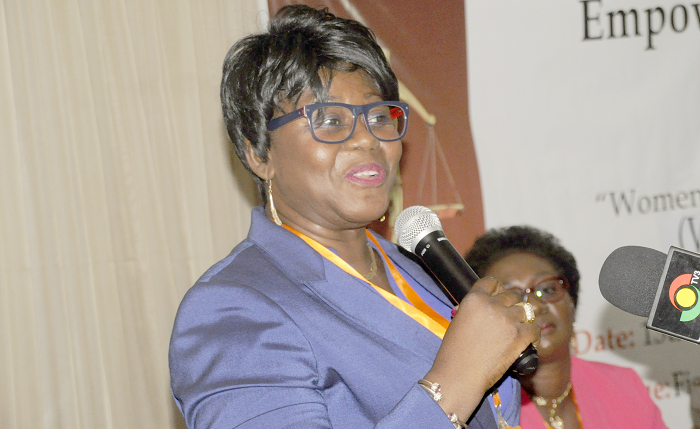
Supreme Court judge advocates fiscal independence for Judiciary
A Justice of the Supreme Court, Ms Justice Sophia O.A. Adinyira, has advocated fiscal independence for the Judiciary to make it truly independent and robust to dispense justice as required by the law.
She said the Executive’s control of the budget of the Judiciary and the failure of the former to honour the financial demands of the latter, had negatively affected the effective functioning of the judicial arm of government.
She stated this in a paper delivered on her behalf by a Justice of the Court of Appeal, Justice Gertrude Torkornoo, at the ongoing New Year School and Conference at the University of Ghana in Accra last Tuesday.
Her topic was,“The Judiciary and Democratic Consolidation.
Funding
Justice Adinyira said the Judiciary’s financial dependence on the Executive had made it difficult for it to build the capacity of its human resource to deepen democratic governance.
"So far, the Executive has respected the Judiciary, but the problem has to do with financial independence because budgetary requirements are not fully met by the Executive.
As a result, the Judicial Training Institute continues to rely on donor support to train judges and build their capacity to make them more effective," she said.
She said it was important to deal with that challenge to build a strong Judiciary that would be capable of dispensing justice without fear of any form of interference.
Mistrust
Justice Adinyira said although the Judiciary had lived above reproach and protected the rights of all manner of persons, it was worrying that there seemed to be growing mistrust by the public in the institution.
To reverse that situation, she called on relevant state institutions, especially, the National Commission for Civic Education (NCCE), to partner the Judiciary to educate the public on the role of that organ of the government.
She added that the way to go to strengthen the judicial arm of government was to take steps to build strong courts that were capable of dispensing impartial justice.
Cost of justice
A legal practitioner, Mr Kofi Abotsi, said inasmuch as Ghana's Judiciary was a showpiece for standing the test of time, the cost of justice was a problem area.
"Efforts are being made to expand access to justice, but the reality is that legal fees are still high. Court fees go to the state and become a form of taxation.
What that means is that justice is being taxed, and this is problematic," he said.
He said there ought to be a new paradigm that would see to it that court fees were retained in the courts and corroborated the view that there was the need to set up a system to wean the budget of the Judiciary from Executive control.
"If the Judiciary has to always go to the Ministry of Finance for a budget, political interference will creep in because of the principle of he who pays the piper calls the tune," he pointed out.
Appointments
Touching on the appointment of judges, Mr Abotsi said there was the need to take that responsibility from the President, adding that "we have got to the point, where the Judicial Service should exercise control over the appointment of judges."
He said that move would not only help check politicisation of the Judiciary, but would also enhance the quality of the justice system.
Mr Abotsi said the lack of enforcement of decisions and rulings of the courts was also worrying.
